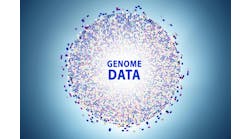As genomic data becomes increasingly valuable in diagnosis and treatment of disease, the need for electronic health record systems to evolve to incorporate and share that data in an effective way is increasing. For instance, today genomic test results are frequently generated by reference laboratories and scanned to a PDF document, then uploaded to the EHR. A committee of the American College of Medical Genetics and Genomics (ACMG) has issued a statement with multiple points to consider about the interface of genomic information and EHRs.
The ACMG statement covers issues ranging from the types of genomic information in the EHR, mechanisms of placement, data entry, usage, patient/provider access, and results disclosure to topics such as portability, and privacy.
The ACMG stated that although advances in precision medicine will soon allow genomic data to be directly linked to clinical decision support tools, the EHR vendors might not be best positioned to curate these tools, given the complexity and dynamic nature of genomic information. “This necessitates the development of new models of clinical decision support maintained by trusted third parties and accessible in the EHR through application program interfaces (APIs).”
The statement also suggests that genetic data be available to the patient in the patient portal, including test results, secondary findings, and the clinician’s interpretation. It stresses that the test report should be linked to the clinician’s note electronically, and the report should “interpret the genomic information in a clear format that clarifies if a clinical diagnosis has been made based on the test results.” Additionally, the committee suggests that the provider’s note (linked to the test result) should include a statement about the unique nature of genomic information, thus clarifying the need for extra privacy protection.
Referring to the increase in direct-to-consumer genetic testing, the committee noted that caution should be exercised in how those results are stored in the EHR. “These results would be best stored in a separate section of the EHR or flagged in such a way as to clarify the origin of the report.”
Interoperability is another issue raised. Separate health systems that provide care to the same patient should be able to view the patient’s genetic data, facilitating coordinated care and minimizing the risk of duplicate testing. ACMG encourages EHR vendors to use standards such as the HL7 genomics model and FHIR, including the emerging FHIR genomics standards.
Health systems, EHR vendors and health information exchanges will likely have to develop mechanisms to protect sensitive genomic information (such as consanguinity, misattributed parentage, and pre-symptomatic test results) in the EHR from inadvertent disclosure, without the explicit written consent of the patient, ACMG, noted. Additional privacy protection mechanisms for types of genomic information such as consanguinity and misattributed parentage could include the designation of these test results under a separate document category in the EHR (“sensitive” or “confidential” notes), either under a broader genomics section or as a stand-alone section.


